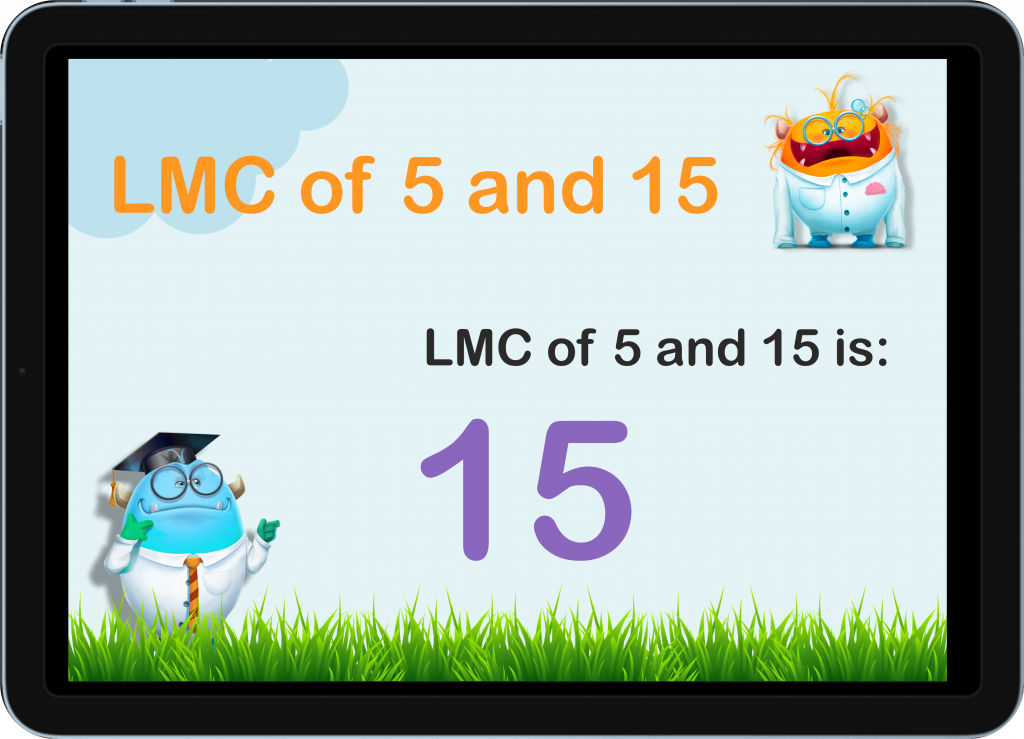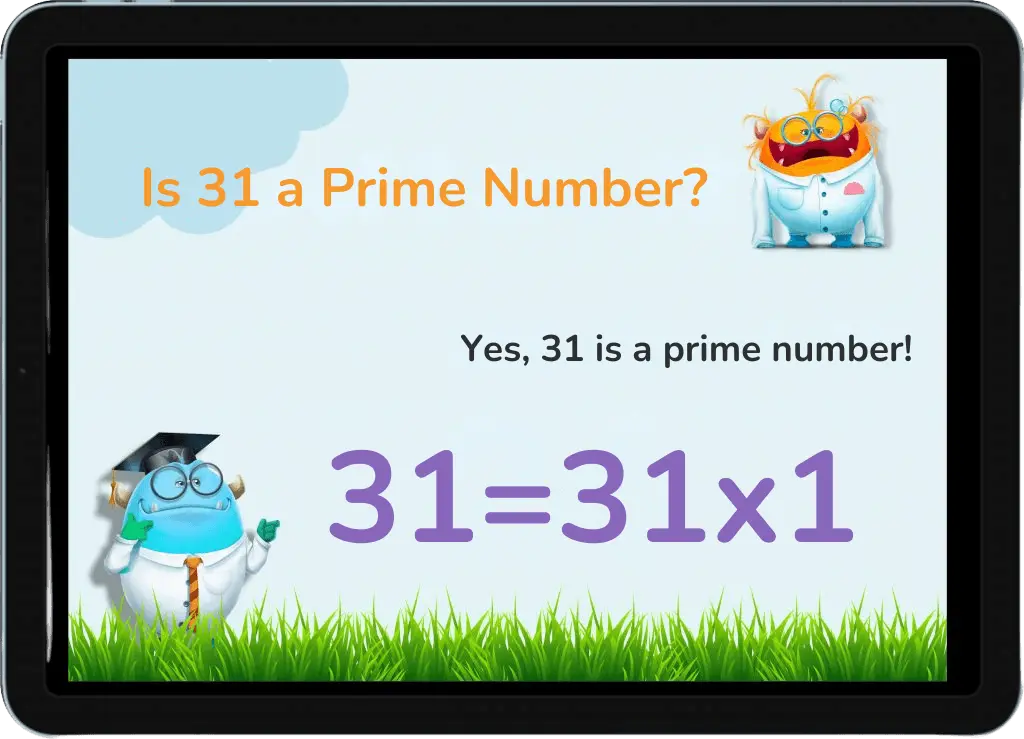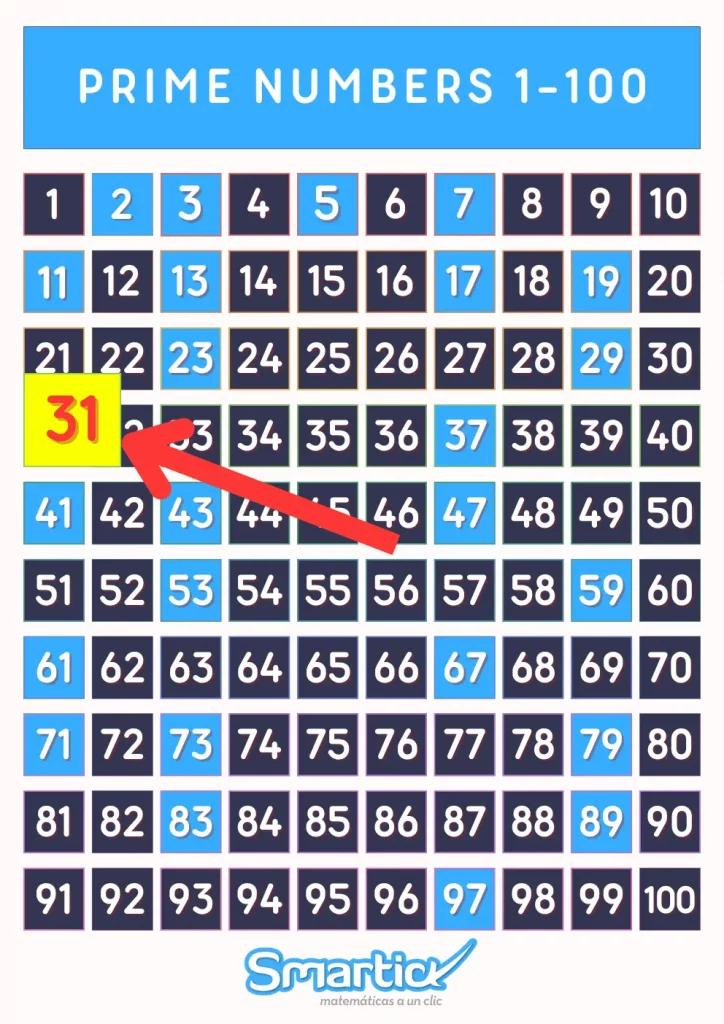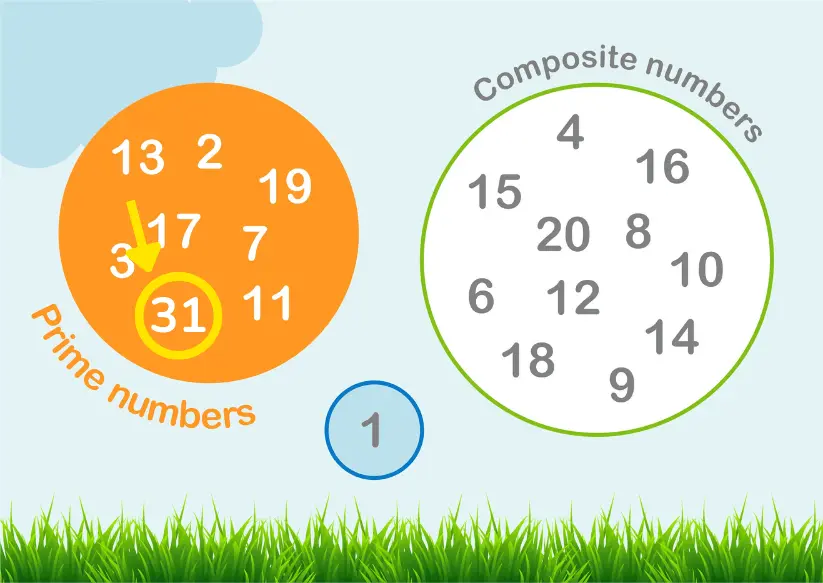Is 2 A Prime Number?
Prime vs. Composite Numbers
Greetings, young math enthusiasts! Today, let’s set sail on a mathematical voyage to determine if 2 is a prime number, and learn more about the difference between prime and composite numbers.

Is 31 a Prime Number?
Or Is 31 a Composite Number?
Math can be as thrilling as a rollercoaster, full of twists and turns. Yes, it may be scary but it’s world of fun. Fasten your belts as we dive into the adventure of finding out if 37 is a prime number!


No credit card required

No credit card required
What are Prime Numbers?
Is 31 a Prime Number?
Verifying if 31 is a Prime Number
Mathematical Verification
Fun Facts About 31
Is 31 a Twin Prime?
Prime Numbers vs. Composite Numbers
Is 31 a Composite Number?
Hello kids! Have you ever wondered about the secret world of prime numbers? These numbers are like the ninjas of mathematics, stealthy and unique. Today, we’re diving into the mysteries of the number 31. Ready to unravel some math magic?
What are Prime Numbers?
A prime number is a number that can only be divided by 1 and itself without leaving any remainders. Think of prime numbers as VIPs in the number world; only they and their best buddy, 1, get the special treatment. Examples of prime numbers include 2, 3, 5, 7, and 11. They don’t like sharing the spotlight with any other numbers.
Prime numbers are like the atoms of the math universe, forming the foundation upon which all other numbers are built. Just like how you can create countless molecules from a few types of atoms, you can form any number using prime numbers!
Is 31 a Prime Number?

Yes, 31 is a prime number. It can only be divided by 1 and itself without leaving a remainder. This means 31 is part of the exclusive prime number group.
Verifying if 31 is a Prime Number
Let’s find out if 31 gets to join the prime number club. We need to check if 31 can be divided evenly by any number other than 1 and itself. Here’s our step-by-step process:
- Divisibility by 2: Is 31 an even number? Nope! So, it can’t be divided by 2.
- Divisibility by 3: Add the digits of 31 (3 + 1) to get 4. Since 4 isn’t divisible by 3, neither is 31.
- Divisibility by 5: Does 31 end in 0 or 5? No, it doesn’t!
Since 31 isn’t divisible by 2, 3, or 5, and there aren’t any smaller numbers left to check, we can confidently say that 31 can only be divided by 1 and itself. Congratulations, 31! You’re a prime number!
Mathematical Verification
Now, let’s verify this like true mathematicians. We’ve already checked the smaller numbers, but there’s a method called “trial division.” This means we divide 31 by all prime numbers less than its square root. The square root of 31 is about 5.57, so we only need to check the primes 2, 3, and 5.
- 31 ÷ 2 = 15.5 (not an integer)
- 31 ÷ 3 = 10.33 (not an integer)
- 31 ÷ 5 = 6.2 (not an integer)
Since none of these divisions result in whole numbers, this confirms that 31 is indeed a prime number.
Fun Facts About 31
Numbers often have interesting quirks, and 31 is no different. Here are some cool tidbits about 31:
- 31 is the 11th prime number: It holds an important spot in the sequence of prime numbers.
- It’s part of a twin prime: 31 and 29 are twin primes, meaning they are both prime and only two numbers apart.
- 31 in the calendar: There are several months with 31 days, making it a familiar number in our daily lives.
- Mersenne Prime: A special type of prime number, expressed as 2^n – 1. For example, 31, which is the third Mersenne Prime, can be represented as 2⁵ – 1.
- Adding up first 31 prime numbers equals 1,720
Is 31 a Twin Prime?
Yes, it is! A twin prime is a pair of prime numbers that have a difference of 2. For 31, its twin is 29. Both numbers are prime, and they’re close neighbors in the number world, making them special twin primes.
Prime Numbers vs. Composite Numbers

Let’s explore the difference between prime and composite numbers. Prime numbers, as we know, can only be divided by 1 and themselves. Composite numbers, on the other hand, can be divided evenly by additional numbers. They have more “friends” or divisors.
For example, 4 is a composite number because it can be divided by 1, 2, and 4. So, it has three friends! Prime numbers are more exclusive, sticking to just 1 and themselves.
Is 31 a Composite Number?
Of course not! 31 is a prime number because it has only two friends (1 and itself). Composite numbers, like 4, 6, 8, and 9, have more than two divisors. Since 37 doesn’t fit that bill, it proudly remains a prime number.
Conclusion
So, there you have it! We’ve discovered that 31 is a prime number because it can only be divided by 1 and itself. It’s also a twin prime, paired with its buddy 29. And, of course, it’s not a composite number because it doesn’t have more than two divisors. Prime numbers are fascinating and essential in the world of math. They help us understand how numbers interact and form the basis of all other numbers.
The next time you come across the number 31, remember it’s not just any number—it’s a prime number! Impress your friends and family with these fun facts. Keep exploring and enjoying the magical world of numbers, and who knows, you might discover something extraordinary yourself!
Learn More About Prime Numbers
© 2024 Smartick. All Rights Reserved.
